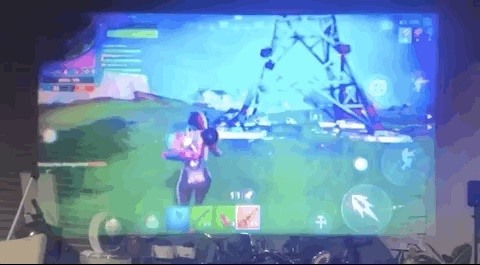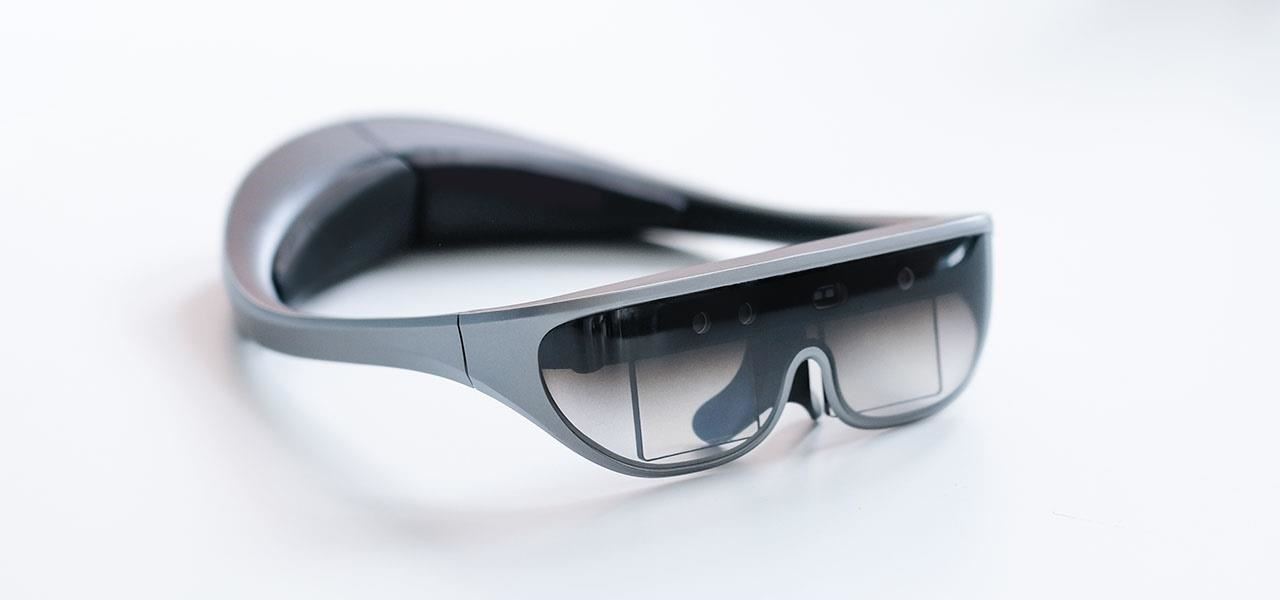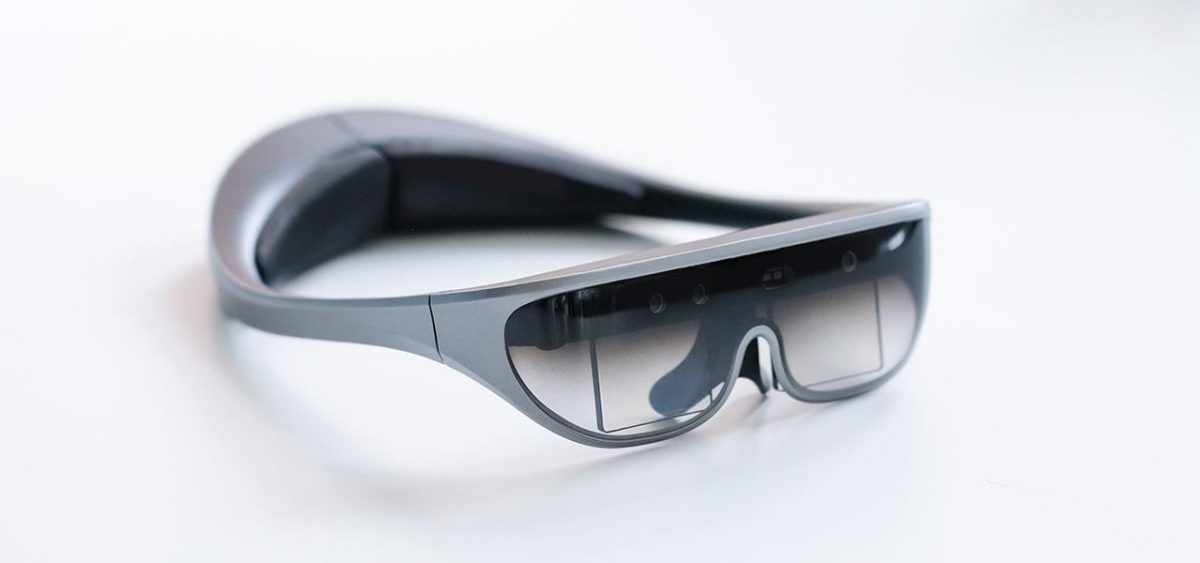Returning to the spotlight after its debut at last year’s CES, augmented reality smartglasses maker Rokid is back with a new update.
On Monday, the China-based startup announced Project Aurora at CES in Las Vegas. The new prototype hardware device is described as functioning as an extension of existing interfaces on smartphones, tablets, laptops, and gaming consoles.
The prototype features dual depth cameras, 6DoF tracking, SLAM (simultaneous localization and mapping), an RGB camera, stereo speakers, and a USB-C port. According to the company, the device shows off the company’s computer vision, AR, and AI capabilities.
Although we have yet to test the device to measure those claims, so far, Rokid claims that its device can deliver face recognition, object recognition, and real-time audio translation when identifying objects (in English, Japanese, Spanish, French, and Chinese).

Image via Rokid
In the demo video (above) for the device, a user is shown playing a smartphone game while wearing Project Aurora. But while he’s controlling the game using his hands on the smartphone, he’s viewing the game looking straight ahead wearing the Rokid device.
That’s more heads-up display territory than AR, but given the device’s depth cameras, we’re likely to see a more AR-focused demonstration of the device sometime this week at CES.

Image via Rokid’s Project Aurora
“With the mission of extending mobile device capabilities and experiences, we’re excited to announce Rokid’s Project Aurora. By leveraging the ever-increasing computing power of mobile devices, Project Aurora supplements these robust experiences by providing a lightweight form factor, industry-leading display quality, and multimodal handsfree input,” said Reynold Wu, Rokid’s head of product and business operations, in a statement.
Rokid Glass. Images via Rokid
“Project Aurora will connect consumers to rich, immersive AR content and experiences that were previously unattainable with such a lightweight smartglass, and we’re excited to share how the future looks through it.”
As of this writing, no details have been provided regarding which mobile, desktop, and gaming platforms Project Aurora will support. However, we do know that the company’s smart speaker, the Rokid Pebble, uses Android, so there’s a good chance that the Project Aurora system will work with Android devices. And since it’s a prototype, there’s no release date, so we don’t have confirmation that this prototype will ever transform into a retail product users can buy.
The company is also showing off an update (above) of the original Rokid Glass at CES. The new model is 40% smaller, weighs just 120 grams, and features a touch pad controller on the side arm of the device. Although a price hasn’t been disclosed, the company plans to begin selling the device to the public this spring.

